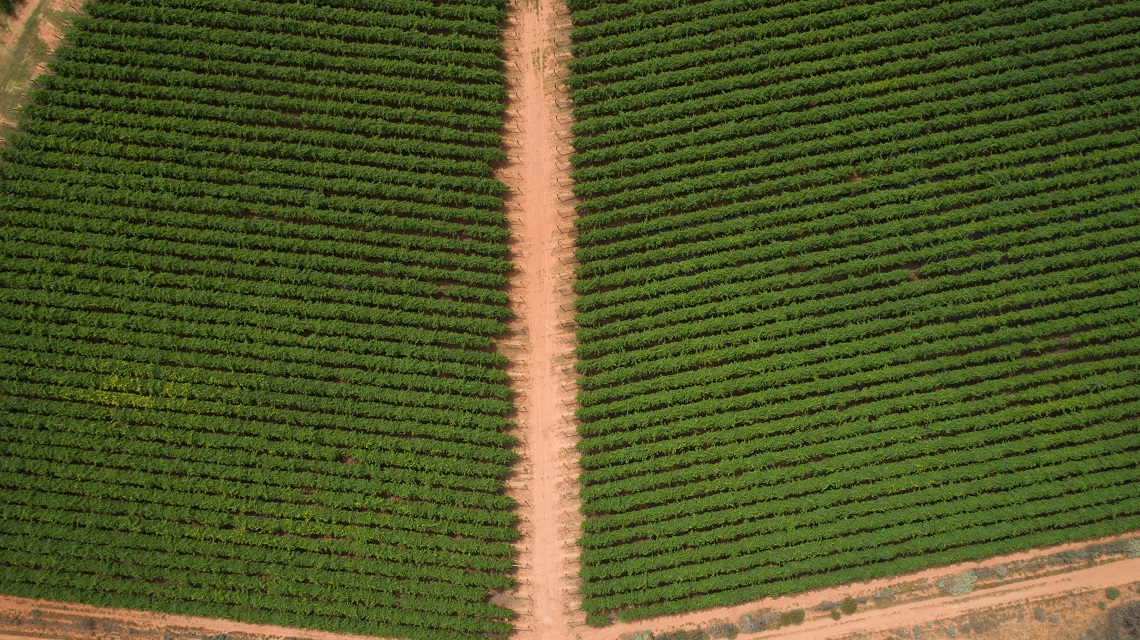Duxton Vineyards has encouraged the industry to not be afraid of failure when it comes to sustainability, and urged businesses to start investing more in a sustainable future.
As one of the country’s largest vineyard land holders, Duxton Vineyards owns and operates over 2400 hectares of vineyards, as well as a large scale winery. According to General Manager, Wayne Ellis, the company has been on a journey of sustainability for the past three or four years.
“We’re such a large land holder and rely on our natural resources, predominantly water out of the Murray and Darling rivers, so that was the start of the process – to give back to the land. Our goal is to give back more than we take out,” Ellis said.
“The methodology behind this is – if we look after the land better, it will sustain our business into the future.”
Ellis recognised it is no easy feat to transform the sustainability levels of any business. It was definitely a challenge for Duxton Vineyards, with two of its largest farms being 900 hectares each and including 3300km and 3700km of vineyard rows respectively. To put that in perspective, Ellis said managing those rows was like going from “Adelaide to Darwin in a tractor at 5km per hour.”
Now part of Sustainable Winegrowing Australia, Ellis said Duxton Vineyards is finding the best ways to implement sustainable practice into both the farm and the business operation. This is what he thinks the industry should be doing at all levels.
His message to the industry was: “Don’t have fear of failure, and look at the longer term benefits versus the short term cost or value impact.
“We have to do something different because our natural resources aren’t replenishing themselves as they used to… There’s a lot of technology out there, and there’s a lot of information available now – it is about just looking at doing something different, which can be a small jump opposed to a leap.”
Some of the examples of sustainability that Duxton Vineyards has employed in this kind of strategy is the move to organic fertilisers and pesticides, instead of synthetic chemical alternatives, and also the planting of native grasses that can then be mulched to give more organic material back to the ground to support biodiversity, and greater soil and plant health.
Duxton Vineyards is also using the latest technology to be more sustainable. One farm is solar-powered and off-grid, with plans to look into other renewable energy sources for the wider business too. Technology also helps the business save water, with automation science helping to detect just how much water is required at different times in the vineyards.
Implementing these measures came with some difficulties. Ellis said those looking to be more sustainable need to be prepared to handle cultural issues within the business, and encouraged patience for those early days where there will be more work to implement the changes.
“What has worked in the past is proven to work. So some [people] might think, ‘if it’s not broken, don’t change it.’ We’ve challenged the ethos of past and present staff to look at what we’re doing differently,” Ellis explained.
“It’s a continuous improvement process, and it does take some internal and external consultation and collaboration about why we’re doing what we’re doing.”
Overall, in all parts of the industry right now, Ellis said there is an obvious and growing need for more sustainability. Businesses who don’t get on board will be left behind and miss out on ample opportunities.
“There’s plenty of interest not only in Australia but across the globe on being sustainable, because everybody is now talking sustainability,” Ellis said.
“In large corporate or retail settings, they have be seen to be doing the right thing for the stakeholders, the consumers and the customers.”
Along those lines, Duxton Vineyards is releasing a new sustainable wine range with Endeavour Group called ‘Rewild’, a collaboration designed to hero progressive sustainability. With recycled cardboard cardboard packaging, lightweight bottles and sugar cane labels, it’s also linked to several environmental initiatives, like renewable energy targets, water saving programs and biodiversity management plans.

